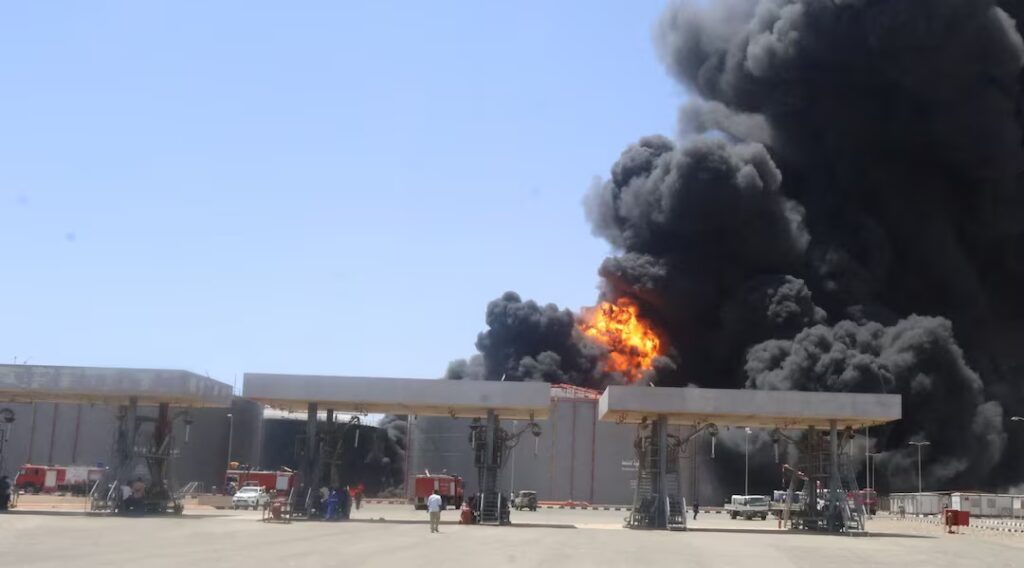A drone strike blamed on the paramilitary Rapid Support Forces (RSF) hit strategic fuel depots handling South Sudanese crude in Port Sudan, Sudan’s temporary administrative capital, on Tuesday, triggering large explosions and fires, according to witnesses and officials.
The attack came just days after South Sudan’s Ministry of Petroleum announced that its crude oil exports had reached the marine terminal at Port Sudan for the first time in months, following disruptions caused by Sudan’s ongoing war between the army and the RSF. The oil was set to be shipped to international markets.
South Sudan, which has one of the largest crude reserves in sub-Saharan Africa, relies on Sudanese pipelines and infrastructure to transport its oil to Port Sudan for export. Oil sales account for over 90% of the country’s revenue, making the export route vital to its economy.
The strike on the Red Sea port city occurred a day after drones hit the Osman Digna air base and Port Sudan International Airport, damaging a warehouse and briefly halting flights, according to earlier reports.
Yehya Mohammed Osman, head of the media and culture department at Sudan’s embassy in Juba, told Radio Tamazuj on Tuesday that the RSF-launched drone had targeted depots holding South Sudan’s oil exports.
“The targeting of the strategic oil depots in Port Sudan began on Monday and continued today, Tuesday,” he said. “The attacks also affected Port Sudan International Airport and parts of the port.”
He warned that the RSF’s drone strikes were undermining efforts to export South Sudan’s oil, partially paralyzing shipments.
“The exportation of crude oil depends on fuel and a continuous power supply, so this is an issue affecting South Sudan’s economy—especially after the optimism around resuming exports,” he added.
Witnesses reported massive explosions and thick plumes of smoke rising from the site. Online videos appeared to show extensive damage.
Sudan’s Minister of Energy and Oil, Mohi Eddin Naim Mohamed Saeed, who visited the site, condemned the attack as a “terrorist” act aimed at destroying critical infrastructure. Fire crews were working to contain the blaze, which officials said had started in a gasoline storage area before spreading to nearby fuel tanks.
No casualties were immediately reported, according to the minister and follow-up statements from the Red Sea State Police media unit. Authorities said they were working to prevent broader environmental or humanitarian fallout.
Minister Saeed accused the RSF—which Sudan’s government labels a militia—of systematically attacking civilian facilities to disrupt daily life.
RSF officials could not immediately be reached for comment.
Meanwhile, Edmund Yakani, a South Sudanese civil society activist, urged the government in Juba to provide updates following the strike on the oil depots in Port Sudan, which he said could severely impact crude shipments.
“The people of South Sudan need to know, and the government should inform them about what is happening to the crude oil targeted in Port Sudan,” he said.
South Sudan’s Ministry of Petroleum has not yet issued a statement on the matter.




